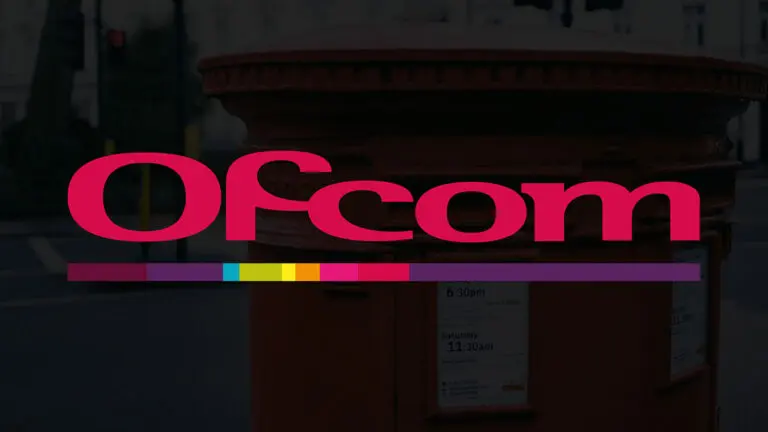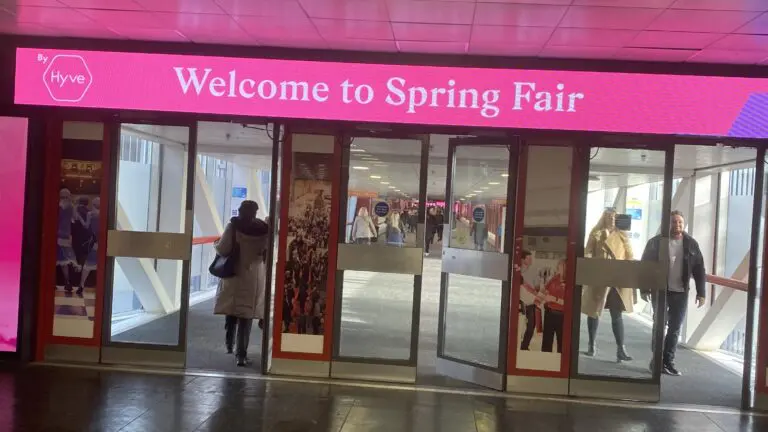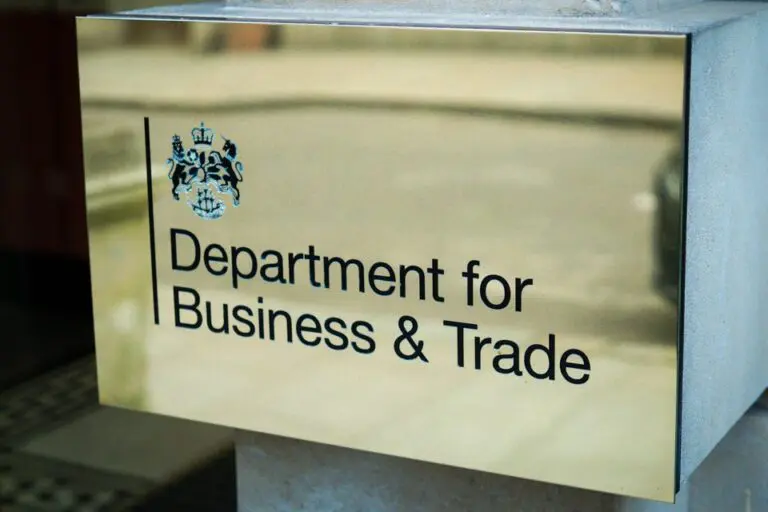
Postal regulator Ofcom called for responses to their consultation on The future of the UK universal postal service , closing 5pm on Wednesday 3rd April 2024.
On Tuesday 2 April 2024, first and second class stamp prices went up by 10p. Also on 2nd April, the GCA submitted a detailed response to Ofcom’s consultation, which included proposals to weaken the ‘Universal Service Obligation’ (USO) cutting back letter deliveries to five or even three days per week.
Thank you so much to everyone in the industry who has contributed to this report, sharing data and insight into businesses, allowing us to analysis the impact on our industry of proposed changes.
This is a really important time for our industry’s voice to be heard.
Amanda Fergusson GCA CEO
The GCA’s response, on behalf of the industry, can be downloaded below.
Why this matters to our industry
The UK card industry is a thriving, vibrant creative industry, contributing £1.5bn to the UK economy; the GCA has over 500 members up and down the country. Ofcom’s data indicates our category is critical to how Royal Mail is perceived by end consumers; their research shows that cards are the most frequent things UK consumers post, and 42% of customers now say sending cards is the only time they use Royal Mail.
Greeting cards enjoy high category engagement with 94% of us continuing to exchange cards, and 49% of the population sending at least one card in the past month . Numbers vary by occasion and channel but, on average, our analysis indicates 50% of purchased cards are posted, equating to c.415m Letters per year.
For those outside our industry who mistakenly believe card sending is an antiquated concept, it’s paradoxical that consumers’ reliance on Royal Mail’s monopoly Letters delivery service rises to virtually 100% for those, often younger, consumers who buy their cards online. Data from both the UK and American markets suggests category engagement is rising within this group, dispelling another myth that card exchange is limited to older generations.
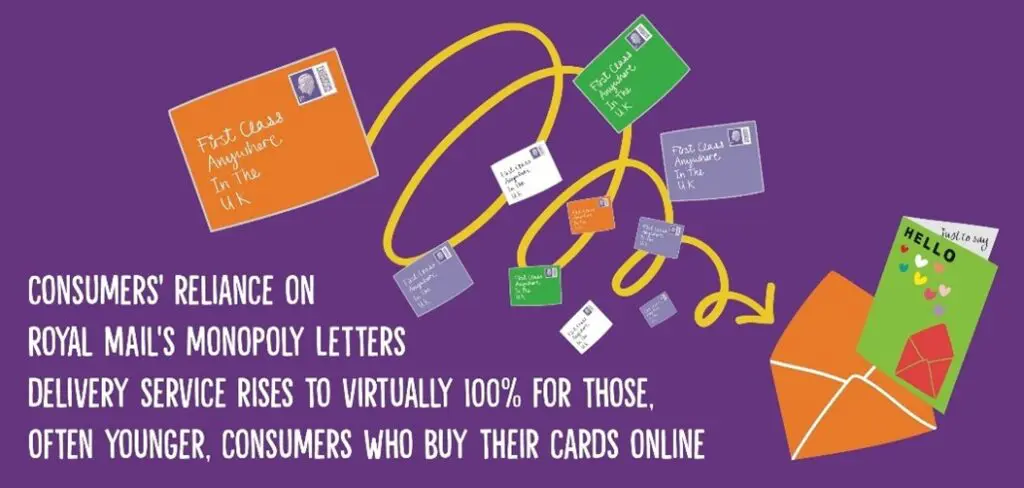
The GCA’s response to Ofcom makes clear
We believe more price rises and service reductions will accelerate a decline in the British postal service, leading to increasingly frequent requests for bailouts.
We are also concerned that there is no underpinned service recovery plans or evidence of meaningful progress to restore the Royal Mail service to legally required levels.
Within hours of Royal Mail’s announcement of April’s price rises, hundreds of public comments expressing concern flooded news media, showing public and SME support for the USO as it is currently constituted.
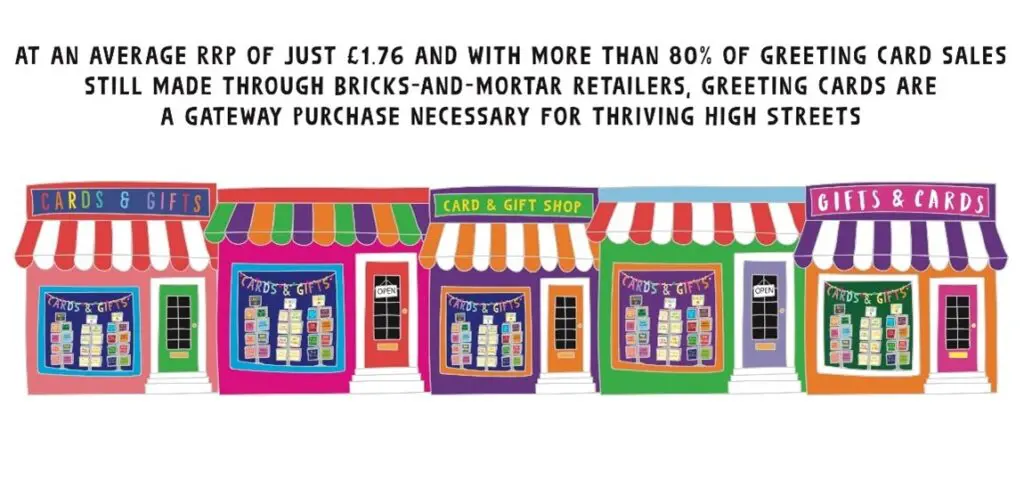
The GCA’s response to regulator asks that:
Service stabilisation and restoration of public confidence in postal service levels should be an immediate priority.
Any future stamp price rises should be conditional on Royal Mail delivering its required USO service levels. The 2nd April price rise added 10p on 7bn letters, with no volume loss this will raise over £100m for Royal Mail (according to Ofcom’s figures that 17pc of that volume is within the obligations of the USO).
Royal Mail should not be given the freedom to set pricing for monopoly products without transparent econometric or price elasticity modelling and meaningful consultation with consumer advocates and trade associations ahead of future pricing changes.
Saturday delivery should stay: Saturday delivery is crucial to GCA members and consumers. Customers regularly order cards in anticipation of posting to or seeing a loved one over the weekend, and Saturday provides a critical backstop given current quality of service performance. It is even more critical in the run up to big seasonal events such as Mother’s Day, Father’s Day and Easter which fall on a Sunday.
Royal Mail explains how currently applying a peak surcharge to business letters during each festive period is consistent with its claim that falling letter volumes cause network under-utilisation which is the reason letter prices must rise.
Royal Mail takes more initiative to stem letter volume declines and plan to return sectors of their Letters business to growth. The GCA is keen to continue to work with Royal Mail around commercial opportunities, such as lowering the price of stamps ahead of Christmas.
There’s greater transparency from Royal Mail: In a market that Ofcom advises is highly unlikely to attract new entrants, there are extremely limited reasons why data can be justified as commercially confidential, especially in circumstances where Royal Mail are claiming they require further regulatory relief, bailouts and/or state support to continue.
Response from Government
GCA CEO Amanda Fergusson has been in regular contact with both the government, and MP’s from across the House of Parliament, with interests in the postal service.
Postal minister, Kevin Hollinrake MP, wrote to Amanda in April to note his understanding of concerns the GCA had raised on behalf of the industry:
Postal services, underpinned by the postal Universal Service Obligation (USO), remain a
Kevin Hollinrake MP, Minister of State for Enterprise, Markets and Small Business
vital part of the UK’s communications fabric for consumers, businesses and public services which is why the Government is committed to ensuring the provision of a financially sustainable and accessible universal postal service which meets consumer needs.
The Government will carefully consider any recommendations that Ofcom puts forward on the future of the universal post service, but the Prime Minister has made clear the importance of maintaining a Saturday delivery service and the Government is not currently minded to introduce new legislation to change the obligations on postal deliveries.
A full copy of the Minister’s letter to Amanda can be downloaded below.

